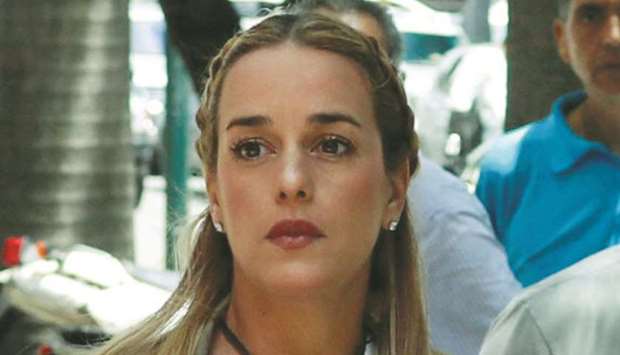Venezuela’s opposition plans to organise an unofficial referendum later this month on President Nicolas Maduro’s controversial plan to rewrite the constitution via a special new congress, opposition sources said yesterday.
The Democratic Unity coalition, which is starting a fourth month of street protests against the socialist government it decries as a dictatorship, will organise the vote for July 16, two senior opposition sources confirmed.
“It is intended to demonstrate that the country does not want this farcical Constituent Assembly,” one of the sources told Reuters. A formal announcement was expected at an opposition gathering later.
Their planned vote, likely to be resisted by the government, would be two weeks ahead of a planned July 30 national election proposed by Maduro for a Constituent Assembly with powers to reform the charter and supersede other institutions.
According to a recent survey by pollster Datanalisis, seven in 10 Venezuelans are opposed to rewriting the constitution, which was reformed by late leader Hugo Chavez in 1999.
Maduro, 54, Chavez’s unpopular successor, says the assembly is the only way to bring peace to Venezuela after the deaths of at least 84 people in and around anti-government unrest since the start of April.
But opponents says it is a ruse to consolidate the ruling Socialist Party’s grip on power and to avoid a conventional free election that opinion polls show Maduro would lose.
The next presidential election is due by the end of 2018, but protesters have been demanding it be brought forward.
The two highest-profile potential opposition candidates for a presidential election are Henrique Capriles and Leopoldo Lopez, but the former has been barred from holding office and the latter is in jail.
Opposition protesters also want solutions to a crushing economic crisis, freedom for hundreds of jailed activists, and independence for the opposition-controlled National Assembly.
His allies say that a new Constituent Assembly would annul the existing legislature and would also remove chief state prosecutor Luisa Ortega, who has split with the socialists during the crisis and become a thorn in their side.

Lilian Tintori, wife of jailed opposition leader Leopoldo Lopez, arrives for a meeting of the Venezuelan coalition of opposition parties in Caracas.
